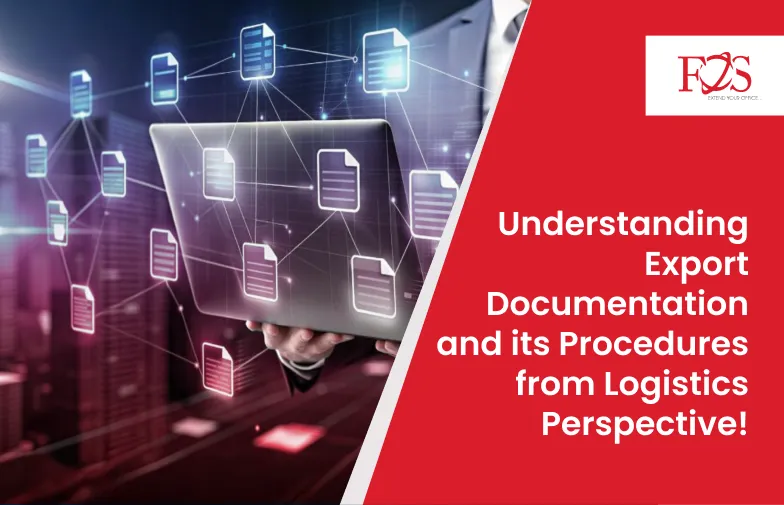Export documentation is a government-issued document that permits the export of specific freights to a designated location.
The document contains everything about the export happening.
It is required for all exports. Only you will have different circumstances and demands according to each country.
Importance of export documentation
A well-organized system of export documentation guarantees that your consignments are shipped on time and without any inconvenience.
Most importantly, it improves your reputation as a reliable exporter who follows trade regulations and is easy to do business with.
The export documentation process varies based on the export types. The most common types of export are given below.
- Direct export
- Indirect export
Direct export
In this type of export, the company sells its goods directly to its customers in other countries.
In this case, the entire process is handled by the manufacturer for all foreign entities without any external involvement.
Indirect export
In this type of export, the company sells its goods to its customers with the help of intermediaries in other countries.
In this case, there will be a need for intermediaries to work on this.
Who are they?
Intermediaries: They require export management companies, distributors, commissioned agents, or brokers to work as intermediaries with the end-user, retailers, and distributors.
Export management companies: An organization that facilitates the export of a manufacturer’s products to foreign markets is known as an “export management company.” Usually, these enterprises export items on behalf of numerous other businesses.
Distributors: In general, an export distributor is a privately owned company that sells various products at wholesale prices. The firm operates the goods it distributes and regularly acts as a middleman for the commercial or consumer goods it sells.
Commissioned agents or brokers: A person who mediates transactions between buyers and sellers on the global market.
Both parties can carry out internal transactions with the help of an export broker. The transaction is facilitated by an export broker, who connects the two parties involved.
Now that we have learned the basics, let’s get into the procedures.
Procedures for export with documentation
- Commercial invoice
- Packing list
- Export license
- Bill of lading
- Payment of shipment charges
- Certificate of origin
- Custom Clearance
- Shipment to destination
1. Commercial invoice
A commercial invoice is a form of export document that serves as legal evidence of a sale transaction between a buyer and a seller. The document is primarily used for customs clearance and to calculate and estimate duties and taxes.
2. Packing list
It is a list that refers to the form that describes the goods to be exported, including the quantity, box, weight, dimension, price, and shipment information.
3. Export license
Prior to shipping the goods, some nations may demand that an export license be secured. The appropriate government agency is where you can receive this license.
4. Bill of lading
A Bill of Lading is a document issued by the carrier of goods to the “shipper” of goods. It is a document that serves as evidence or proof of shipment. This is critical in international trade because it establishes who legally owns the cargo.
5. Payment of shipment charges
The shipment charges need to be paid to the goods carrier or the respective agent of the goods carrier.
6. Certificate of origin
A “certificate of origin” confirms that the exported goods were manufactured in that country. This document includes information about the specification, destination, and exporting country
7. Customs clearance
The bill of export is the primary document required by the Customs Authority for shipment authorization. The shipping agent issues a bill of export, which serves as a certificate for all parties involved, including the ship’s owner, seller, buyer, and others.
The shipment must be cleared by customs officials at the port of export. This includes completing the necessary paperwork and paying any applicable customs duties or taxes.
8. Shipment to destination
All of the above processes should be completed in accordance with the laws and regulations of the country of origin and the country of destination prior to packing the goods.
Then board the goods onto the ship, which sails to the destination port. Then the goods are shipped to the destined places.

On the bottom
With proper export documentation, your freight can reach its destination without being interrupted.
Export documentation is of many components. Read them well, because it also acts as a record for the exported goods, which prevents them from being lost during shipping.
If you do not know how to prepare export documentation, we can prepare them for you.
FOS Desk has experienced documents specialists who can take care of your entire logistics BPO needs, especially logistics documentation.
